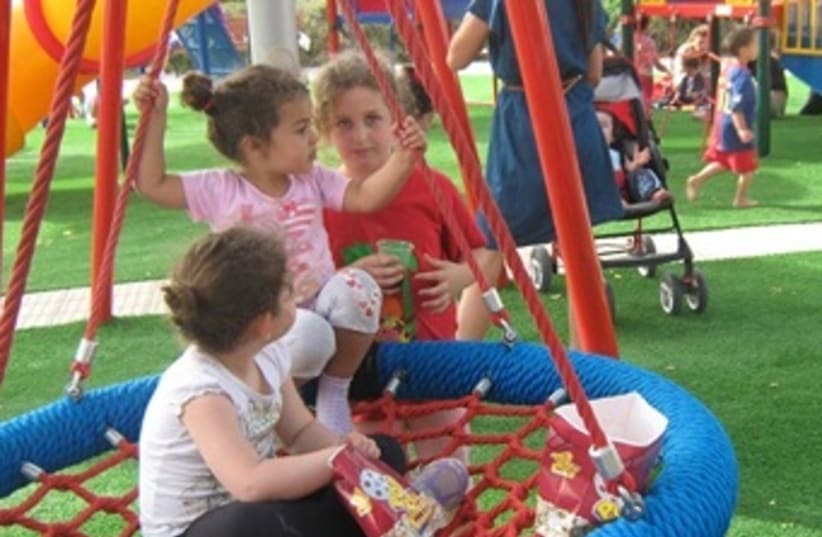Experts at Schneider Children’s Medical Center in Petah Tikva have issued recommendations to making the summer vacation safe for children. Sickness, injuries and death result mostly from dehydration, drowning, falls from heights and accidents on bicycles, rollerblades and other wheeled toys and vehicles. Accumulated exposure to the sun can also cause long-term damage.
Prof. Yehezkel Weissman, head of the urgent medicine department at Schneider. urged parents to protect children who are outdoors by having them use proper sunscreen and wear hats and long-sleeved, lightweight clothing. Avoid being outdoors between 10 a.m. and 5 p.m.
Dehydration, he said, is a dynamic process that, without treatment, can cause harm to vital bodily systems. The signs are a dry mouth, minimal urine, restlessness and crying without tears. In addition, there may be confusion, headache, dizziness and even reduced consciousness in extreme cases. When dehydration is suspected, give the child water and take him to the nearest health fund clinic or emergency room. If consciousness is reduce, call for an ambulance.
Children who ride need to wear helmets and knee and elbow protectors. Do not allow them to go into the busy streets, said Weissman.
Children up to the age of five years need constant supervision when near bodies of water, even a bathtub or pail. Keep in constant eye contact. Private and public swimming pools must be enclosed by a fence. It is advisable to teach children to swim from the age of five.
Jellyfish bites are not often dangerous, but they can cause a lot of pain. Don’t rub the skin area; instead, wash it with sea water (not tap water). Then an emollient can be applied to reduce the pain. If there are large blisters or general weakness, go for medical attention. Avoid bites by insects. Do not try to remove the stinger. If there is an allergic reaction, go for immediate medical attention.
Keep young children away from unbarred windows and access to roofs. Make sure not to leave chairs and other objects on which they can climb and then fall.
As more children spend the summer mostly indoors and using their tablets, cellphones, computers and TV set, they can overeat and gain weight: Parents should leave healthful snacks such as fruits and vegetables and not potato chips, hot dogs and other junk food. They will eat less if they don’t munch in front of the computer or TV. Cold water is the preferred beverage.
Check to ensure that good given in summer camps be nutritious and not chocolate spread every day; ask for tehina, white cheese and other healthful spreads. Ask to see the menus of meals that are served.
